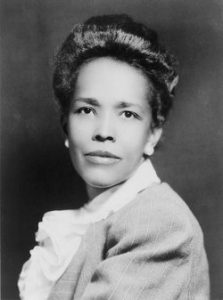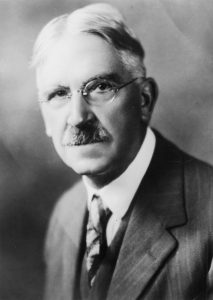Principles of organizing and education:
The principles of organizing and education are such that many well-known scholars have contentious views as to the roles of each phenomenon in the daily operations of mankind. To exhaust the beliefs of every philosopher, organizer and educator would be to embark on an endless journey. As such, I will be curt and only reference the philosophy of Ella Baker and John Dewey, two prominent beliefs, as a way to conextualize the information found throughout this site.

Source: https://images.findagrave.com/photos250/photos/2014/105/14992167_1397701843.jpg
Ella Baker, a black central Afro-American organizer during the early to mid 20th century believed that the empowerment of the people was the most essential key to successful organizing. An activist dedicated to the organization of small groups, Baker believed that relationships between human beings was far more important than monetary gain (Payne, 1989). Baker honed in on the practical approaches of organizing in everyday life. Baker’s theory is best characterized as participatory democracy. She believed “strong people don’t need strong leaders” and that “political action should empower people to solve their own problems” (as cited in Mueller, 2004, p. 79, 82). Participation implicates people in decisions that govern their lives. It also emphasizes the minimization of hierarchy and calls for direct action (Mueller, 2004). In order to build up the people and create it so that they are able to solve their own problems, Baker believed a key principle to organizing was to “start with people where they are” (as cited in Mueller, 2004, p. 84). This meant organizers had a responsibility to assess their own intentions and to organize people around what they (the people) are first interested in rather than what organizers deemed most important (Mueller, 2004).

Source: https://i2.wp.com/www.librairie-ptyx.be/wp-content/uploads/2014/12/John-Dewey.jpg
John Dewey, a white American philosopher taught at a number of institutions during the early 20th century. His ideas regarding education and social reform are a foundation many scholars have built upon. In his book The Public and its Problems, Dewey examines the constituents of the state and the public. He establishes the public as people with shared interests and the state as individual actors who serve as representatives (Dewey, 1927). According to Dewey, the purpose of organizing is to form new channels to handle power. New channels to power must be harnessed when state laws and individual actors (working for the state) are not working for the people. Dewey believes organizing should come from communities which are publics that serve as mediums to represent the people and their interests. While theoretically straightforward, Dewey (1927) admits the “outstanding problem of the public is the discovery and identification of itself” (p. 351). As such, education is an essential tool in allowing the people to realize their power.
Cited Sources:
Dewey, J. (1927). The Public and its Problems. New York City: Henry Holt and Company.
Mueller, C. (2004). Ella Baker and the Origins of “Participatory Democracy. In J. Bobo, C. Hudley & C. Michel (Eds.), The Black Studies Reader (pp. 79-90). Great Britain: Routledge.
Payne, C. (1989). Ella Baker and Models of Social Change. Signs, 14, 885-899.
